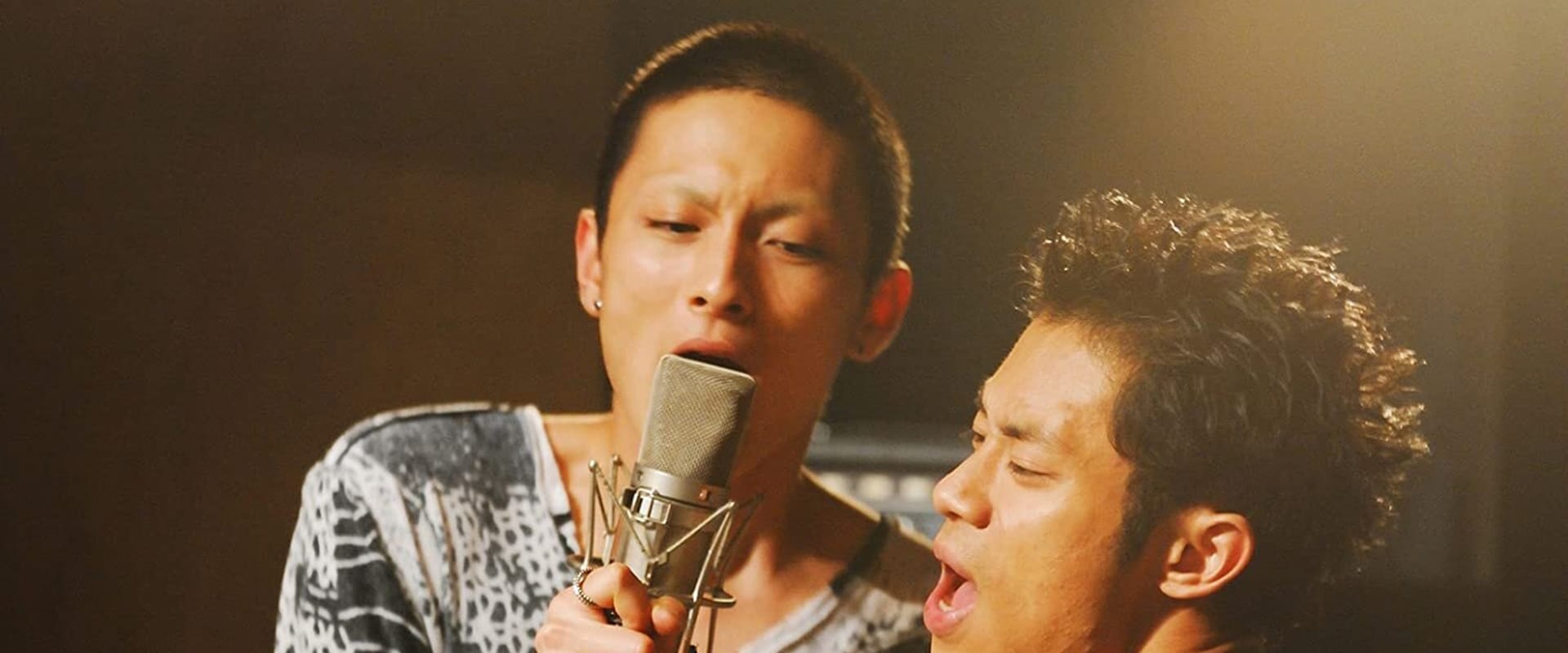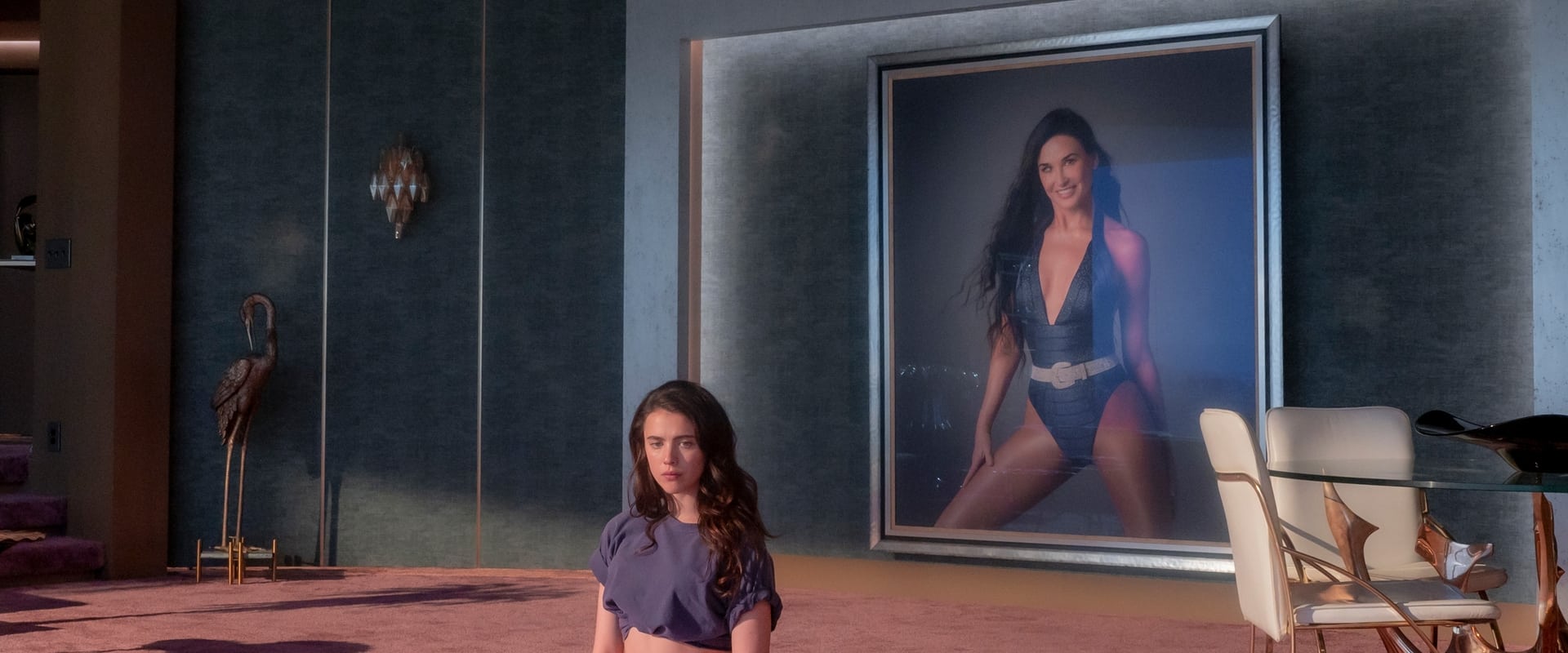Once in a while, a film comes drifting in on the wind, caught by almost no one, championed by even fewer, carrying the kind of oddball, heart-clutching enchantment that threatens to restore faith in the very act of cinema. Fish Story, Yoshihiro Nakamura’s time-hopping wonder, is precisely that sort of late-breaking revelation: a freewheeling, postmodern fable, at once as headlong and as intricately assembled as the punk anthem at its core. It’s hard to think of a movie, in these battered days, that is so bracingly, disarmingly optimistic—so resolutely happy to believe that music, and thus art, can literally save the world. And damned if the movie doesn’t just about convince you.
Adapted from a novel by Kōtarō Isaka (itself a minor cult curiosity), Fish Story is a clockwork of stories clicking into each other across decades. The linchpin is a song—a scraggly proto-punk howl called “Fish Story,” recorded by a band so ahead of their time that the world can’t quite be bothered to show up for their funeral. Gekirin, the fictional band, are the film’s ghosts; you want to Google them when the credits roll, only to remember, with a jolt, that believing in legends is exactly the point.
The movie demands more from its audience than mere complacency—it wants us to feel, to connect, to light up with the electricity of possibility. Fish Story answers with a collection of wandering Japanese souls: a record store doomsayer preaching the comet apocalypse; slacker boys in the dead zones of a lost Tokyo night; a high schooler battling hijackers while scrubbing away her own self-doubt on the open seas; and, in shattered chronology, the making of the song itself in a world deaf to its wail. The picture keeps inviting you to guess the connection, and it’s perhaps one of the pleasures of cinema: being outwitted—and then rewarded—by a director who actually cares if you feel joy when the puzzle snaps into place. You’re left struck dumb with delight at the simple beauty of things clicking together, storylines converging in a way that feels neither forced nor sentimental, but as natural—and as moving—as a familiar refrain triumphantly reprised.
Director Yoshihiro Nakamura pulls off the rare trick of mutating tone without whiplash: hijack thriller, campus comedy, band biopic, end-of-the-world wallow. In another era, this might have been ponderous—an arthouse muddle with irony overdrive and no stake in its own outcome. Instead, Fish Story is breezy, unstuck from time but anchored to its unapologetic belief that goodness and kindness ripple outward, even if you never know where the wave will crest. Like Juzo Itami’s Tampopo did for food, Fish Story elevates music to the level of the divine—the song as virus, as genetic code, as the hope handed across an abyss.
Yoshihiro Nakamura understands that pop culture, when it works, is memory—distant, fuzzy, occasionally ridiculous, but exhilaratingly personal. Every frame of Fish Story radiates a kind of homespun Japanese quirkiness; it’s a patchwork assembled from T-shirts found at a thrift shop and the undiminished optimism of late-night radio. The film is charming without cuteness, eccentric without affectation—energy bottled at the source, less about punk’s violence than its yearning promise.
Performance-wise, everyone is believable, refreshingly untreated: even the smallest roles, like the man in the record shop sermonizing about doom, have the attentive oddness of someone you might actually meet in a city spinning towards its finale. There is no Brando here, no De Niro—a fact that works in the film’s favor. This is an ensemble of faces who seem to have stepped out of their own stories to let us in, just for a couple of hours, onto the joke and the heartache.
The script—so often the bloodless part of Japanese ensemble films—is a minor marvel, weaving four stories and a dozen motifs with the precision of an engineer but the flair of a street busker. The structure is a web; if the director had a wall with colored yarn and Post-Its, you wouldn’t doubt it, but marvel at the patience. (When even the Fortean Times stumps up a five-star rating, you know something wonderful, and probably a little paranormal, is afoot.)
And yet, what lingers is not the cleverness but the emotional afterglow. Fish Story doesn’t condemn its characters to banality or mockery. The movie understands the long, invisible aftermath of our smallest actions—how a song written in frustration and obscurity can, decades later, nudge a world off its axis back towards hope.
Songs pass from hand to hand, and so does kindness; it may take years, or never reappear in your lifetime. That’s a message worth more than the whole omnicompetent output of American blockbuster machinery. Fish Story doesn’t just dare to believe in music; it believes in you.
Is it too much? Maybe. But sometimes, after a season of “prestige” films bustling with cynicism and death, you want to be reminded that happiness is a thing with sharp chords and oddball harmonies—and that the world, sinking and rescued, marches to a beat you’ve never quite heard before.
If you ever needed a reminder that greatness can come in the shape of a punk single, or a comet’s near miss, watch this. Fish Story is the kind of film that might save your day—or at least give you two hours’ worth of utterly redeeming hope. It’s that rare, quietly miraculous event: an epic with a dream, and a killer soundtrack.


